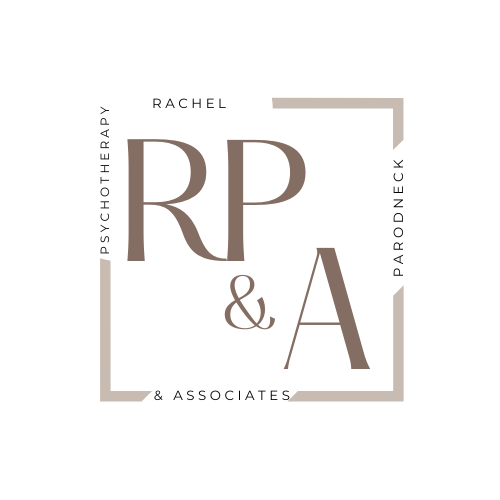How to Prevent Triggers from Turning into a Relapse
By Rachel Parodneck LCSW
This season can be especially fraught with triggers. From the holiday party to the family feuds that may ensue to low mood due to lack of sunlight, triggers abound in the winter months. A trigger can be defined as social, environmental or emotional situations that remind people in recovery of their past drug or alcohol use. These cues bring about urges that may lead to a relapse.
If you're newly sober or striving for recovery, a drink or drug can seem even more tempting during the winter months.
In terms of triggers, there exist internal and external triggers, both contributing to relapse. External triggers are from outside sources, reminders of one’s drug or alcohol use. Internal triggers come from within; uncomfortable emotions such as fear, anxiety, and depression that lead people to want to self medicate with a drink or a drug.
Common external triggers to be aware of--avoiding people, places, and things that remind you of your previous drug and alcohol use:
People may be friends whom you used to party with. Even if they are friends you grew up with with whom you do not want to end your relationship, it’s okay and important in early sobriety to distance yourself from the friendship while you’re in a vulnerable place in recovery. If they are your true friends, they will understand and you’ll be able to reconnect with them on a deeper level once you’ve gotten your stable sober footing. In the meantime, you might want to make some new friends with whom you do not have a past history of partying. A good way to meet new people is by joining a Meetup.com group. There are literally thousands of groups based on countless different interests.
Places are reminders of where you used to party. These could be a park, a friend’s apartment, your favorite bar or out at clubs. Wherever those places may be, if you’re in early recovery, it is in your best interest to avoid those places at least in the beginning. Find your new favorite haunts. There are so many great places to take advantage of in the city that never sleeps: some ideas if you’re a night owl there are many dessert bars open late that do not serve alcohol but have delightful desserts (and if you’re in early recovery, you may have a hankering for sweets), board game bars, and late night movies (now that theaters are opening up again).
Another life hack: If you feel you’re unable to get away from a place, don’t be afraid to excuse yourself physically from the situation. You are a grown person with autonomy and you can leave at any time. Despite being guilted by family or friends to stay, your health and sobriety are more important than conforming to the societal pressures you may be facing.
Things are alcohol and drugs, drug paraphernalia, and any item that reminds you of your use. A good way to get rid of these is to throw them out. If you don’t want to “waste them,” or feel it would be too challenging to handle tossing the items yourself, ask a friend or family member to remove them from your surroundings for you. It may be hard disposing of items that perhaps were expensive, but think of the expense it was costing to your health.
Tips to help with internal triggers:
Internal triggers can be a little trickier. There are not simply logistics to bear in mind. With internal triggers, the key is to not isolate yourself. Being alone with your thoughts when you’re struggling to stay sober can be the worst thing for you. It is key to reach out for support.
Support can take on many different forms:
12-step programs: Don’t knock ‘em til you try ‘em. Alcoholics Anonymous has saved millions of lives since it’s conception in 1935. There are many offshoots of their 12-step program such as Narcotics Anonymous, Cocaine Anonymous, and Crystal Meth Anonymous. You may not get down with those spiritually-based programs, so there are others such as SMART recovery which is more science-based. All of the programs mentioned above are free and peer-led. Attending meetings regularly and getting a sponsor are essential to doing the dang thing and getting results.
Family and Friends: This may seem like a no-brainer but it’s not necessarily so for everyone. If you’re lucky enough to have people in your life you can count on, it’s incredibly helpful to lean on them for support. Your mom, best friend, or sibling can do wonders if you’re feeling like using and make all the difference between reaching for that drink or drug vs. maintaining your recovery.
Go to the Pros: Last, but certainly not least is seeking support from mental health professionals. That could look like getting a therapist, a psychiatrist, going to a detox, residential rehabilitation or outpatient rehabilitation treatment center.
A great place to start is by contacting me for a consultation or by booking an appointment with me. I would be happy to guide you through the process of recovery and help you achieve your vision of success.
For help finding a treatment facility, SAMHSA, The Substance Abuse and Mental Health Services Administration which is a branch of the U.S. Department of Health and Human Services has a helpful link where you can find a treatment center for support. For help finding a treatment center you can also call 1-800-662-HELP(4357).
Additionally, I’ve included helpful links below
Suicide prevention lifeline
1-800-273-TALK (8255)
Free and confidential support for people in distress, 24/7.
1-800-985-5990
Immediate crisis counseling related to disasters, 24/7.
References:
https://www.drugrehab.com/recovery/triggers/


